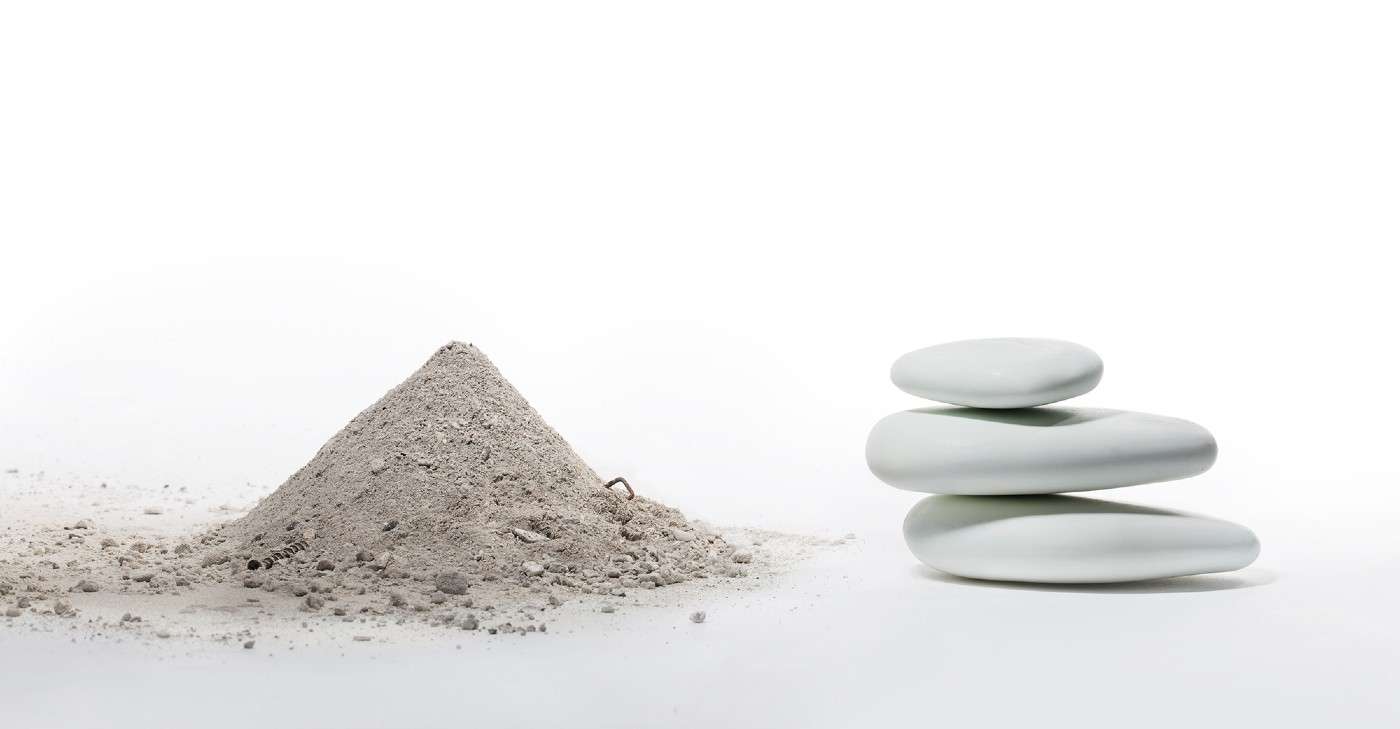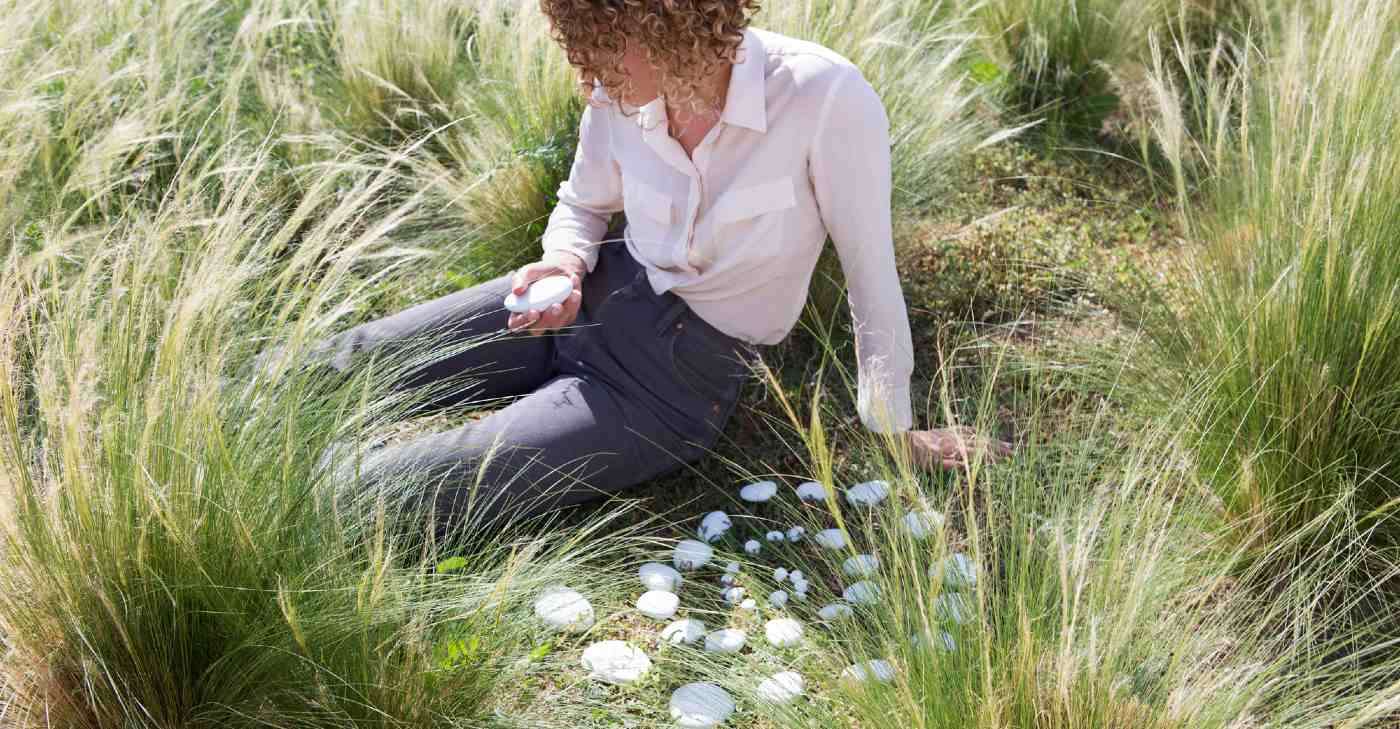Locals Digging a Well Accidentally Discover a $140 Million Star Sapphire Weighing Half a Ton
In the City of Gems in Sri Lanka, local workmen discovered a star sapphire cluster weighing half a ton, containing 2.5 million carets.

A smooth pebble, fired in a kiln from the ashes of a dearly departed, is the latest way Americans can choose to carry on the memory of a loved one.
Parting Stone is a startup looking to give people both a personal and portable way to remember someone they've lost, with one person's ashes capable of producing a collection of stones.
As WS has reported before, Americans as a whole don't have the best relationship with death. While the cost of traditional casket burial funerals is reaching unsustainable levels, a sea of new companies are rushing in to help people find better, cheaper solutions.
Some have leaned towards the green funeral movement, with composting caskets made of mushrooms, or forest conservation funded by scattering ashes at the base of a tree. Others have moved into personalized ash-crafting, such as pressing a loved one into a vinyl record, a beautiful glass sculpture, or even an artificial diamond.
Parting Stone is a mixture of the two, sparing soils from the near-ammonia levels of pH found in human ashes, while also allowing people to quite discretely carry a small memory of the departed with them.

"It's a canvas for the experience, not the experience itself," explains founder Justin Crowe to Fast Company.
The ashes are milled into a really fine powder and mixed with water to create a clay-like base. This is placed into a kiln and fired into the stone which is then polished. Without knowing exactly why, the stones tend to vary in color, which Crowe hypothesizes could be due to physiological differences between the deceased, such as diet composition or medications.
Regardless, they can appear white, brown, faintly blueish-grey or green, lavender, or with a variety of speckled patterns. Weighing between 4-8 pounds, a family will typically get anywhere from 40-60 stones at the cost of $675 for a human and $300 for a pet.
Crowe explains that he came up with the idea after losing his grandfather in 2014, and wanted a better experience with his remains, which felt void of spirit, even in a decorative urn.
Of course, as Crowe points out, ashes usually come in a plastic bag before an urn is chosen. "We don't accept this experience in any other part of modern life. Why are we accepting it for people we love?" he said.
He remembers how people felt around the stones at a business conference, when more than 200 people asked to hold them. Collecting small, beautiful or fascinating stones is something many of us do, especially in natural places like a waterfall or in a desert wash where interesting geological processes occur.
Holding a smooth stone that fits nicely in one's palm, knowing it contains a piece of something you love, speaks to that very primal desire.
Parting Stone is a startup looking to give people both a personal and portable way to remember someone they've lost, with one person's ashes capable of producing a collection of stones.
As WS has reported before, Americans as a whole don't have the best relationship with death. While the cost of traditional casket burial funerals is reaching unsustainable levels, a sea of new companies are rushing in to help people find better, cheaper solutions.
Some have leaned towards the green funeral movement, with composting caskets made of mushrooms, or forest conservation funded by scattering ashes at the base of a tree. Others have moved into personalized ash-crafting, such as pressing a loved one into a vinyl record, a beautiful glass sculpture, or even an artificial diamond.
Parting Stone is a mixture of the two, sparing soils from the near-ammonia levels of pH found in human ashes, while also allowing people to quite discretely carry a small memory of the departed with them.

"It's a canvas for the experience, not the experience itself," explains founder Justin Crowe to Fast Company.
The ashes are milled into a really fine powder and mixed with water to create a clay-like base. This is placed into a kiln and fired into the stone which is then polished. Without knowing exactly why, the stones tend to vary in color, which Crowe hypothesizes could be due to physiological differences between the deceased, such as diet composition or medications.
Regardless, they can appear white, brown, faintly blueish-grey or green, lavender, or with a variety of speckled patterns. Weighing between 4-8 pounds, a family will typically get anywhere from 40-60 stones at the cost of $675 for a human and $300 for a pet.
Crowe explains that he came up with the idea after losing his grandfather in 2014, and wanted a better experience with his remains, which felt void of spirit, even in a decorative urn.
Of course, as Crowe points out, ashes usually come in a plastic bag before an urn is chosen. "We don't accept this experience in any other part of modern life. Why are we accepting it for people we love?" he said.
He remembers how people felt around the stones at a business conference, when more than 200 people asked to hold them. Collecting small, beautiful or fascinating stones is something many of us do, especially in natural places like a waterfall or in a desert wash where interesting geological processes occur.
Holding a smooth stone that fits nicely in one's palm, knowing it contains a piece of something you love, speaks to that very primal desire.
SHARE This Thoughtful Mission With Friends on Social Media…
Be the first to comment